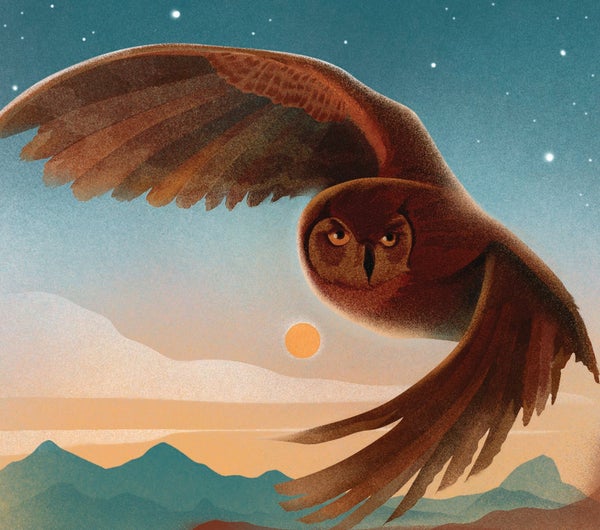On supporting science journalism
If you're enjoying this article, consider supporting our award-winning journalism by subscribing. By purchasing a subscription you are helping to ensure the future of impactful stories about the discoveries and ideas shaping our world today.
Edited by Dava Sobel
The owl came because he wants
this scrap of woodland, wants
the beeches and their hollow hearts,
their cavities. He came because
so long ago the farmer left his fields
alone to grow their latent crop
of trees that no one came to cut.
The owl wants this wooded hilltop,
its ancient oaks that stand among
heaped quartz the farmer or his father
or his father's father cleared.
The owl wants the hilltop's crown of hollies,
wants the deep-shade roost
they've made; he wants this open branch
that ends a wing-wide tunnel
through the hollies' shelter,
wants this place to watch, to rest
and cast his pellets, wadded clumps
of fur and bone the rain dissolves
to show he wanted squirrels,
and voles, and frogs, and once
a huge black beetle. If you knew
a wood would call an owl back,
if you knew the owl's calls
would fill the winter wood
until another owl answered,
wouldn't you want
to leave the land alone
to grow its woodland, wouldn't you want
to grant the owls what they wanted?
